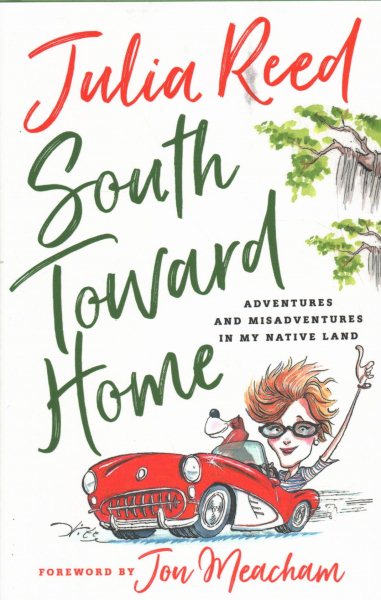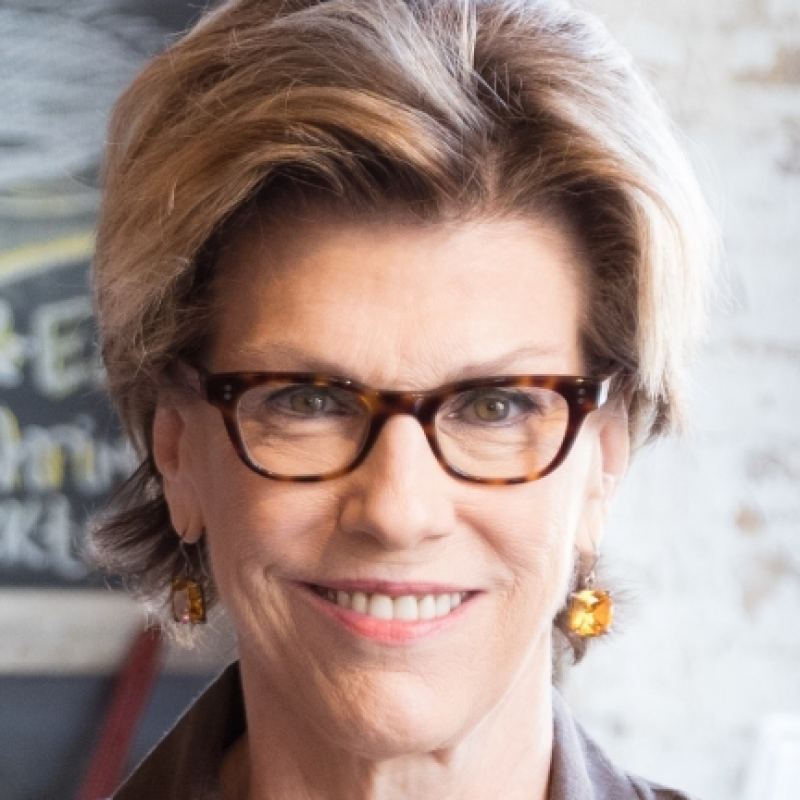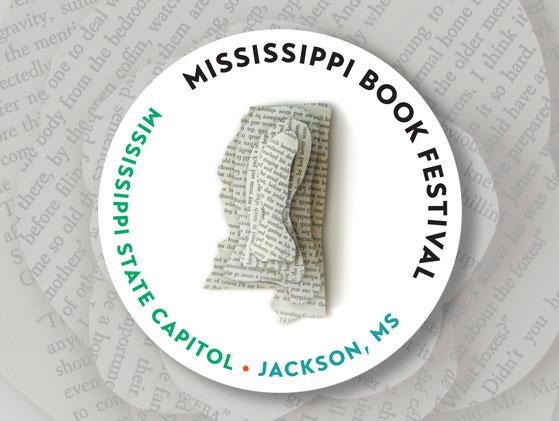Interview by Jana Hoops. Special to the Clarion-Ledger Sunday print edition (August 5)
 Mississippi’s Julia Reed, a columnist and author of six previous books, has blessed her fans with yet another salute to the South, this time with South Toward Home: Adventures and Misadventures in My Native Land, a collection of essays culled from “The High & the Low,” her regular column in Garden & Gun magazine.
Mississippi’s Julia Reed, a columnist and author of six previous books, has blessed her fans with yet another salute to the South, this time with South Toward Home: Adventures and Misadventures in My Native Land, a collection of essays culled from “The High & the Low,” her regular column in Garden & Gun magazine.
A Greenville native, Reed left her hometown at 16 to attend Madeira School in McLean, Virginia, outside of Washington, D.C., then went on to Georgetown University and American University.
Her time at Madeira became the basis for two essays in South Toward Home, subtly named “Grace Under Pressure” and “Good Country, Bad Behavior.” Those essays, she explains, are about her high school years at the school and “and about how my murderous (true story) headmistress inadvertently kick-started my journalist career.” Other essays tend more toward the familiar, and cover such Southern topics as alligator hunting, summer camp, and the Delta Hot Tamale Festival.
With a foreword by Jon Meacham, the book earns points for Reed’s role as “one of the country’s most astute and insightful chroniclers of the things that matter most.”

Julia Reed
Reed began her career in the Washington bureau of Newsweek magazine and later worked in New York as an editor and writer for Vogue. In addition to writing for Garden & Gun, she contributes to Veranda and the Wall Street Journal‘s WSJ magazine.
Do you have plans to move back Greenville from New Orleans? I’ve heard you’re building a house in Greenville.
I will still keep my treehouse of an apartment in the Garden District of New Orleans. But I am indeed building a house in Greenville that is almost finished. It’s across a country road from the pasture where I used to keep my horse. It’s a slice of Delta heaven–I’m calling it my Delta Folly–and I’ve long had the dream of building a place on that spot. I can hardly wait to be in there with my hound dog Henry. Of course, I’ve already planned a kajillion parties.
Your new book is a collection of essays you’ve written about the South, including Mississippi. What do you hope readers will take from them?
There are plenty (of essays) about Mississippi, and especially about the Delta, since that’s always been “home” to me. But as Jon Meacham says in his foreword: “Her canvas is the whole South, stretching from the dives of New Orleans up through her beloved Delta and winding up, naturally, in the northern reaches of Virginia, at the Madeira School for girls.”
What I hope people get from them is a view of the South in all its complicated, sometimes embarrassing glory. I cover everything from Scotch whiskey to the lowly possum and a lot of stuff in between: our food, our music, our fun-loving proclivities, our tendency toward committing a whole lot of mayhem in the name of the Lord. One of the things I hope people take away from the book–and one of the things we might should teach the rest of the country, especially in these increasingly fraught times–is the crucial importance of being able to laugh at oneself.
The title of your book, of course, invokes memories of Mississippi writer Willie Morris’s North Toward Home. Tell me how the title of your book fits the theme of this work.
Willie was born in Yazoo City, not far from where I grew up, so of course I knew of him, even as a kid. I was still a kid when North Toward Home came out in 1967, but not long afterward, I read my parents’ copy and I knew, even then, that it was the kind of memoir every writer should aspire to. Willie, like so many of us, went north from Mississippi to make his fame and fortune, to create a life and career.
I had a wonderful, rich life and career as a journalist in Washington and New York. But after a while, I missed my native land. When I returned home for visits, I’d rent the biggest car I could find in Memphis–even though in those days there was a plane from Memphis to Greenville–roll down the windows and blare the air, and breathe in that inimitable Delta scent of soil and pesticide. I swear it was like heaven. One of my favorite drives remains that route from Memphis, much of which is on Old Highway One, the road that hugs the river parallel to Highway 61. Eden Brent has a terrific song about that road called “Mississippi Number One.”
Anyway, I finally moved back, as did Willie before he left us, so South Toward Home seemed appropriate as a title and an homage of sorts.
The humor in your writing is unmistakable, and it gives a lighthearted nudge to encourage fellow Southerners to laugh at themselves while considering a wide and diverse range of topics in South Toward Home–including the use of grits as a weapon, the mixture of lust and politics, and the merits of taxidermy, to name a few. How did you develop your keen sense of humor, and learn to shape it into your writing in the form of personal “life lessons,” often in the face of sobering circumstances?
Well, as I said,, we’ve long had more than enough reason to laugh at ourselves, so it’s a useful skill to have. Plus, there’s just a lot of stuff down here that’s flat out funny. I mean, in one of the book’s chapters I talk about a New Orleans socialite who not only planned her own funeral, but attended it–with a glass of champagne in hand. She was seated onstage at the Saenger Theater, a cigarette in one hand and champagne in the other while people went up to pay their respects–or just plain ogle. The photo of her dead self, living it up, made the front page of the Advocate. If I wrote that as fiction everyone would say it was too over the top. You literally can’t make this stuff up.
There’s another essay about the Mississippi coroner who declared one poor man dead–except that he wasn’t. They figured out he was alive when they saw movement in his leg just as they were about to pump him with embalming fluid.
As my friend Anne McGee said at the time, “That gives some new urgency to the phrase ‘Shake a leg.'” We almost fell over we started laughing so hard. What else is there to do? Life is pretty funny, and laughter is really, really good for you. It’s an infinitely better choice than the alternative.
I also had the good fortune to be raised by very funny parents who had very funny friends. It’s like not knowing what real Chinese food tastes like until you finally go to Chinatown–or something like that. I thought everybody was funny until I left home, and then, sadly, I found out otherwise.
In what ways would you say being a Mississippian has shaped your life and career positively; and in what areas would you say we still have a way to go?
I have a baseball cap that says, “American by Birth, Southern by the Grace of God.” It was given to me as a joke, but it’s sort of on the money. I am especially grateful that I was born in the time and place that I was–the Greenville I grew up in was a cultural hotbed, full of writers and artists and lots of goings on. We had a Pulitzer Prize-winning newspaper, which is still there, thank goodness. During that heyday of journalism, talented reporters came from all over the country to work for Hodding Carter. I decided that seemed like a pretty good way to make a living.
Plus, my next-door neighbors Bern and Franke Keating wrote a took pictures for National Geographic. I loved the idea of having a magazine send me around the world to learn stuff and I got a lot that when I was at Vogue. I went everywhere from Los Angeles to London to Paris to Manila to Moscow and Kabul. And I saws many, many miles of America on various presidential campaign buses and trains. I was really lucky in my career–I had a blast.
As for how far we have to go, Mississippi has done a pretty good job lately at facing down some our more shameful and horrific ghosts. When I come to Jackson to sign at Lemuria and again for the Book Fest, I want to make a lot time to experience the Mississippi Civil Rights Museum, which I hear is amazing. But we should not allow ourselves to get complacent on that subject, ever.
And, of course, we have a whole lot more work to do on a lot of fronts. In one of the essays in the book, I make reference to our abysmal record in nutrition and education by saying that at this point we should just print up bumper stickers reading “First in Fatness, Last in Literacy.” That is actually not funny. Now that I’m going to be a homeowner in Greenville, I look forward to getting more deeply involved in the community and its many needs.
What can you share with readers about your appearance with Garden & Gun editor-in-chief David DiBenedetto at the Mississippi Book Festival this year?
Dave and I have done events like this a couple of times before. We love each other and we love to laugh and yack with each other. Our conversation onstage is not unlike the conversations we’ve had in various bars around the South.
Do you have other writing projects in mind at this time?
Next spring, my eighth book, Julia Reed’s New Orleans, a cooking and entertaining book that is a companion volume to Julia Reed’s South, will be published by Rizzoli.
Julia Reed will be at Lemuria on Wednesday, August 8, at 5:00 p.m. to sign and read from South Toward Home: Adventures and Misadventures in My Native Land.
Reed will also appear at the Mississippi Book Festival on August 18 in conversation with Garden & Gun editor David DiBenedetto at 12:00 p.m. at the Galloway Fellowship Center.



Comments are closed.